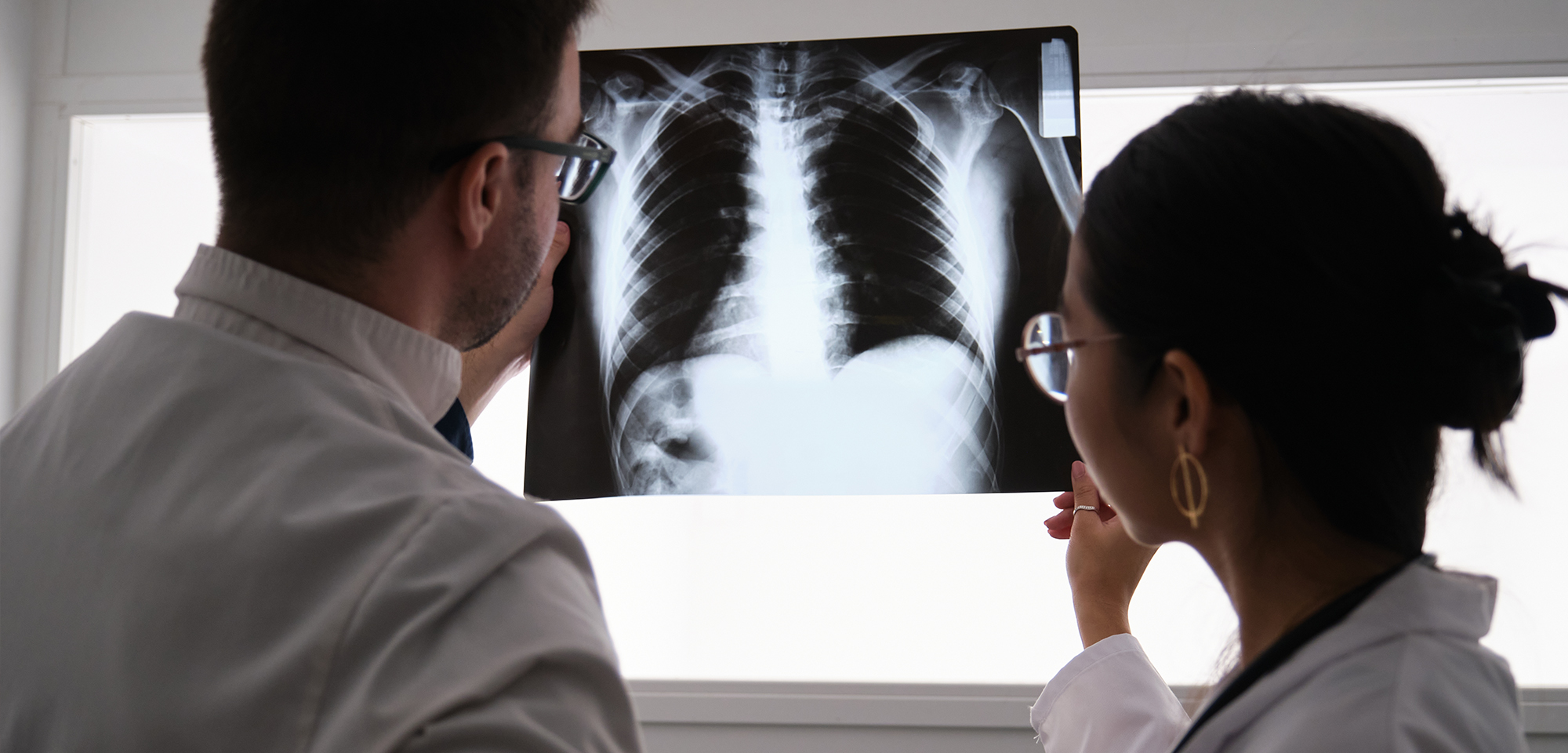Medical/Health Professions Transfer

Apply
Interested in the medical field? We’ve got you covered
These programs are designed to help prepare students for careers in health and science-related
fields and are designed to transfer to a university where the student will continue
their professional study.
CARE. TRAINING. HEALTH.
Cowley College's Pre-Medicine transfer pathway will prepare you to attend a four-year university and earn a bachelor's degree. Our program is designed to help you easily move on to a university and focus on a specific area of healthcare.
If you want to make a difference in people's lives through a healthcare career, our Medical and Health Professions Transfer degree program is a great way to begin. Join us and start your path towards a bright future in the medical and health field. Apply now to take the first step towards reaching your career goals.
Chiropractors, also known as chiropractic doctors, diagnose and treat patients whose health problems are associated with the body’s muscular, nervous, and skeletal systems. Chiropractors assist the natural healing process by helping maintain, restore, or enhance your health. To enter a chiropractic college in the U.S., you will need a minimum of two years of pre- chiropractic course work with prescribed science content.
A dental hygienist provides a wide range of services designed to promote good oral health in individuals. An Associate of Science transfer pathway will prepare a student to seek an associate or bachelors level degree in Dental Hygiene. Associate degree programs may not require all of the listed prerequisites. It is suggested the student check the requirements at the school they will transfer to for specific courses.
Dentists are professionals. It is their job to diagnose, treat, and prevent disorders of the teeth, gums, and mouth. Dentists advise clients about the care of their teeth and refer them to specialists, if needed. Students take at least three years of pre-dental studies and then four years of dental school. The pre-dental studies are similar to pre-medicine studies and mainly include science courses.
An Associate of Science transfer pathway in Dietetics (science of food and nutrition) will prepare a student to continue to a four-year university to compete a bachelors degree in dietetics. Upon completion of the B.S. degree requirements, an accredited dietetic internship, and passing the national credentialing exam, Registered Dietitians (RDs) can work in many settings, including health care facilities such as hospitals and extended care facilities. Dietitians also may be found working in public health settings, such as Women, Infants, and Children (WIC) programs, food stamp programs, programs for the elderly, non-commercial and/or commercial foodservice operations, or in private practice counseling.
An Associate of Science transfer pathway with an emphasis in Pre-Medicine will prepare a student to continue to a four-year university to complete a baccalaureate degree. Upon acceptance and completion of Medical School, a Doctor of Medicine can work in many settings, including family practice, surgery, and preventive medicine.
An Associate of Science transfer pathway with an emphasis in pre-Mortuary Science will prepare students for a program in Mortuary Science and a career in funeral service.
An Associate of Science transfer pathway with an emphasis in Pre-Nursing will prepare a student to apply for a nursing program at an accredited college. Students who earn a baccalaureate degree in nursing and pass the state licensure examination are licensed as registered nurse (R.N.). R.N.’s may supervise, teach, and delegate nursing care to health team members as well as deliver direct care and treatment.
Pharmacists prepare and dispense drugs prescribed by doctors. They also advise patients, doctors, and other health care professionals on proper doses and drug interactions. They must know what is in a drug, how it works, and how it affects people with different illnesses or injuries. Pharmacy programs focus on chemistry, biology, physiology, anatomy, and pharmacology.
Physical therapists provide services that help patients restore function, improve mobility, relieve pain, and prevent or limit permanent physical disabilities of those suffering from injuries or disease. Their patients include accident victims and individuals with disabling conditions such as lower back pain, arthritis, heart disease, fractures, head injuries, and cerebral palsy. They design the treatment programs, and assess the patient’s physical abilities and progress, maintain statistical and clinical records, confer with other health care professionals, and often develop and implement health promotion programs.
Diagnostic medical sonographers are professionals that produce and analyze images of the body which can be used by doctors to diagnose and treat a variety of medical conditions.
Veterinarians identify and treat medical problems in animals. They treat injuries and illnesses, perform surgery, prescribe medications, and prescribe preventive healthcare, such as vaccinations. By these methods or through research, veterinarians also help to protect people from diseases carried by animals. “Pre-veterinary medicine” is not a major. Although not required, a bachelor’s degree is recommended for application to veterinary school. Many students choose to major in biology or animal science while completing the pre-requisites for veterinary school. Pre-requisites for veterinary schools vary, and students are responsible for checking the pre-requisites at the veterinary schools for which they apply.
![]() Learn For Free
Learn For Free
Kansas residents can earn scholarship dollars to cover expenses and learn for free
by completing an eligible associate degree or certificate under the Kansas Promise
Act Scholarship. Contact the Scholarships Department to find out more about the Kansas Promise Act Scholarship.
